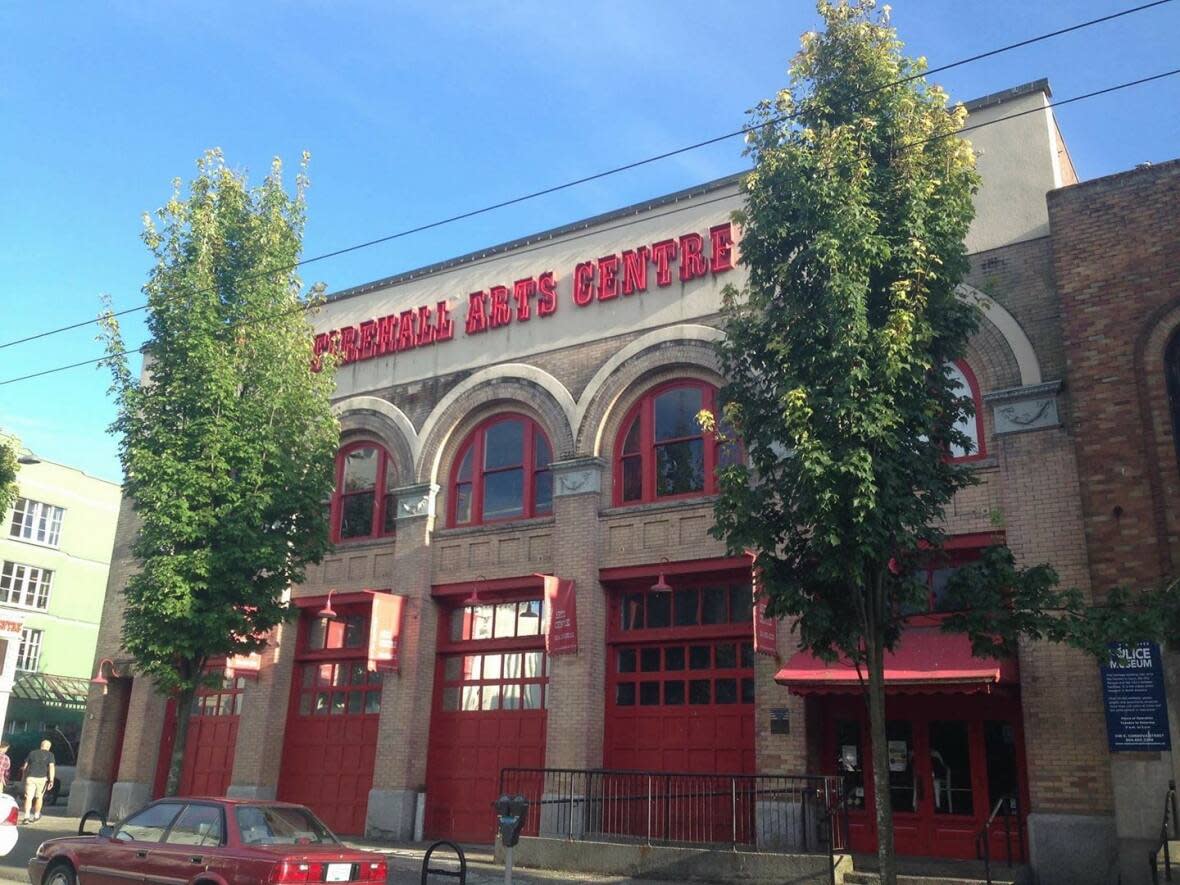Vancouver's Firehall Arts Centre celebrates 40 seasons on the Downtown Eastside

When Donna Spencer toured an empty fire station in Vancouver's Downtown Eastside back in the early 1980s, she saw something few others might have: a potential launching ground for the city's arts and theatre community.
Now, the Firehall Arts Centre is celebrating the start of its 40th season and Spencer, who co-founded the organization and serves as its artistic director, says she is excited for a full return to live theatre after three years of pandemic hardships.
The Firehall, which still has large bay doors, brick walls and a fire pole, was built in 1906 and operated as a fire station until 1975. It was then renovated and converted into a performance space, and opened to the public in 1982.
Back then, Spencer says, Vancouver's theatre scene was "seen as being in the backwoods" by both those in the city and elsewhere, as there were few performance spaces available to put on large-scale productions.
It was also, she says, "pretty white ... there weren't a lot of diverse cultures being seen on stage."
A showcase for new voices
The centre "provided a place for smaller theatre companies to actually be able to get their work out there," said Spencer. "I think we had pretty much every small company in Vancouver through the Firehall at some point in the 40-year history."
Representing the different communities who live in the Downtown Eastside was one of the Firehall's key missions from the beginning, Spencer says, with particular emphasis placed on representing Indigenous and BIPOC performers and writers.

Among those whose careers the Firehall helped launched are Ojibway playwright Drew Hayden Taylor and Rick Shiomi, an award-winning Japanese Canadian playwright and artistic director from Toronto, now based in Minneapolis.
Shiomi's Rose's Cafe premiered in 1989 at the Firehall, and then went on tour, which he said was rare at the time for people of Japanese descent.
"Asian Canadian theatre artists and playwrights was kind of a remote idea back in the '80s and early '90s," he said, citing Spencer and the Firehall as leaders in pushing for that to change.
Hayden Taylor said Spencer was the first to introduce his work to Vancouver with his play, Someday.
Breaking new ground
This sort of groundbreaking work was not always welcome. In 1999, Hayden Taylor recalled, the theatre received a bomb threat during a performance of one of his plays from someone who accused it of being "racist against white people."

Hayden Taylor took the bomb threat in stride, though, saying, "That's one of the greatest achievements of me as a playwright, right?"
Among other productions, one of the first plays to be written about missing and murdered Indigenous women and girls premiered at the Firehall Arts Centre in 2000.
The Unnatural and Accidental Women, created by Métis playwright Marie Clements, portrayed the lives of vulnerable Indigenous women who fell victim to serial killer Gilbert Paul Jordan in the 1980s. The play was the very first to open the National Arts Centre's Indigenous Theatre program in September 2019.
Spencer says the Firehall's upcoming season will continue to showcase work from a wide variety of disciplines and cultures.
"It's really about sharing stories," she said.
"People need community, I think, and theatre provides community."

 Yahoo Movies
Yahoo Movies 
